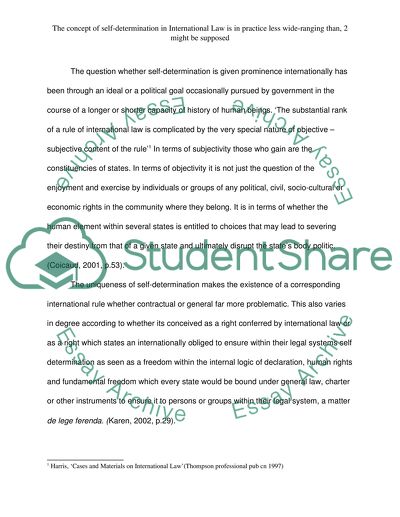Cite this document
(The Concept of Self-Determination in International Law Essay, n.d.)
The Concept of Self-Determination in International Law Essay. Retrieved from https://studentshare.org/law/1543415-the-concept-of-self-determination-in-international-law-is-in-practice-less-wide-ranging-than-might-be-supposed
The Concept of Self-Determination in International Law Essay. Retrieved from https://studentshare.org/law/1543415-the-concept-of-self-determination-in-international-law-is-in-practice-less-wide-ranging-than-might-be-supposed
(The Concept of Self-Determination in International Law Essay)
The Concept of Self-Determination in International Law Essay. https://studentshare.org/law/1543415-the-concept-of-self-determination-in-international-law-is-in-practice-less-wide-ranging-than-might-be-supposed.
The Concept of Self-Determination in International Law Essay. https://studentshare.org/law/1543415-the-concept-of-self-determination-in-international-law-is-in-practice-less-wide-ranging-than-might-be-supposed.
“The Concept of Self-Determination in International Law Essay”, n.d. https://studentshare.org/law/1543415-the-concept-of-self-determination-in-international-law-is-in-practice-less-wide-ranging-than-might-be-supposed.


